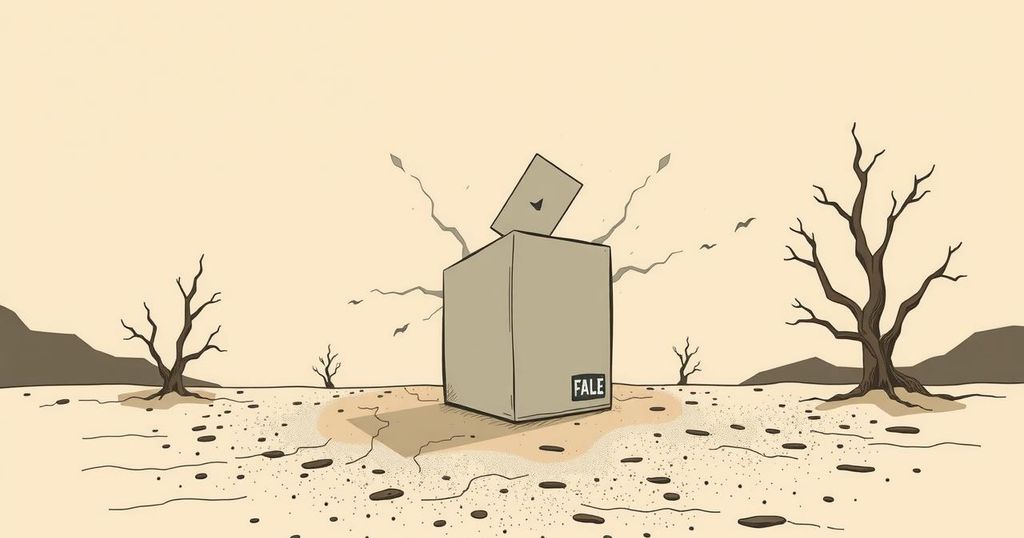A Gender Links study reveals that Botswana is experiencing “democratic erosion” in terms of women’s political participation. Despite a new government’s formation, women’s representation in the National Assembly has fallen to 8.7%, while local representation has declined to 15%. Although there are some gains in cabinet positions, overall losses outweigh advances. The media coverage of women during elections remains critically inadequate, emphasizing the need for improvements in inclusivity.
Botswana, often regarded as a stable democracy in Sub-Saharan Africa, faces significant challenges regarding women’s political participation. A recent study by Gender Links reveals a state of “democratic erosion” impacting women’s roles in governance. Despite the celebration of a new government following the Umbrella for Democratic Change (UDC) victory, the report indicates that women’s representation in political decision-making has deteriorated, questioning the true essence of democracy in the nation.
The report points out that gains achieved in promoting gender equality are now greatly diminished, with only three of the 28 women candidates successfully winning seats in the National Assembly. Consequently, women’s representation in parliament has declined to 8.7%, marking the lowest ranking among Southern African Development Community (SADC) nations, while global initiatives aim to enhance women’s political participation.
Women’s representation at the local government level has also seen a decline, dropping to 15%. Nonetheless, there is a slight improvement in women’s presence within the cabinet, increasing from 17% to 22%. Despite this progress, the overall trend indicates a reduction in women’s political representation across consecutive elections. The study highlights a concerning trend of having only one woman appointed as assistant minister, emphasizing the challenges ahead in achieving gender parity.
Gender Links Women’s Political Participation manager Mabetha Manteboheleng remarked that these results are a stark reminder of the extensive journey towards gender equality. She noted the media’s role in exacerbating this issue by failing to amplify women’s voices during elections, crucial for fostering a more inclusive democracy. Gender Links conducted this gender audit as part of the Enhancing the Inclusion of Women in Political Participation (WPP) project, focusing on capacity-building initiatives that included training academies and mentoring.
From various political groups, over 100 women politicians participated in training, with 14 competing in elections. However, only Helen Pushie Manyeneng secured a parliamentary seat, while five won local council positions. Additionally, two young women represented Botswana at an international youth conference, indicating future potential for greater involvement. The 2024 elections saw 28 women candidates among 262 total candidates, an increase from 11 in 2019, but this did not yield a proportional increase in elected seats.
Furthermore, the report points out a stark gender imbalance in media coverage during the election period. A media monitoring initiative revealed that women constituted just 4% of news sources in electoral reporting, highlighting the need for greater representation of women’s voices in political discussions. Colleen Lowe Morna, Gender Links Special Advisor, stated, “In over twenty years of gender and media monitoring across Southern Africa, this is the worst outcome we have ever seen,” reinforcing the urgent need for improvement in this area.
The recent audit by Gender Links highlights a troubling decline in women’s political participation in Botswana, revealing that despite some improvements in cabinet representation, overall gains have been compromised. The significant underrepresentation of women in both elected positions and media coverage signifies a broader democratic erosion that necessitates urgent intervention. It is essential for stakeholders to reassess their strategies aimed at enhancing gender equality in politics to reestablish a more inclusive democratic framework.
Original Source: allafrica.com






